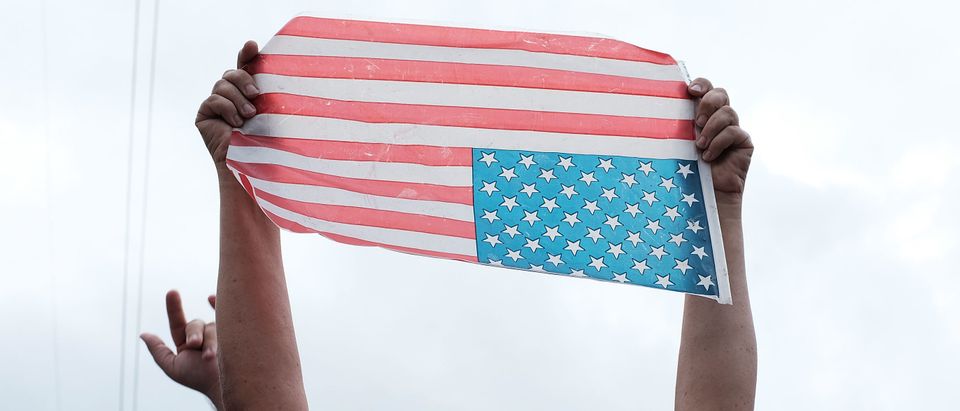America’s roughly 20 million college and university students are living and learning in politically charged, progressive spaces where genuine viewpoint diversity and access to professors with varying worldviews are increasingly rare.
I should know; I have visited and taught at many of these institutions and am now a professor at Sarah Lawrence College, one of our nation’s most proudly progressive colleges.
My over-15 years living and working in college and being immersed campus life have granted me exposure to one of the most dangerous, potent, and hypocritical forces infecting our institutions of higher learning: the student-facing administrators. These collegiate employees, many of whom are not trained to teach in the classroom, have quietly and quickly been gaining incredible power and influence on our campuses with virtually no oversight.
I just completed a new research project which surveyed over 900 of these student-facing administrators in a nationally representative sample of those student affairs, residential life and academic advising offices. Participants were asked about their thoughts on politics and campus life.
The data makes it clear that this class of people is more extreme and out-of-touch with faculty, students, and the average academe as a whole, often operating in a progressive bubble.
This is hugely problematic because students are being regularly instructed not by trained faculty, but by a growing contingent of administrators who are not in the academe.
Many of these now non-academic instructors, 40 percent of whom happen to be millennials themselves, claim to be open, tolerant and truly inclusive of all ideas and views. Yet, as the new data shows, they have little interest in the promotion of real intellectual diversity.
As an educator, what I find most troubling with the rise of these extra-curricular educational experiences is the blatant hypocrisy among many college administrators. They claim to care about diversity, but they really don’t. And it’s not just Sarah Lawrence; this problem is present on thousands of college campuses around the country — and I have the numbers to back it up.
At first, my survey data suggests that these administrators offered encouraging thoughts on diversity when I asked about the general mission of higher education and the priority of a diversity of ideas on campus. In fact, 78 percent believe that the challenging of ideas should be a high priority and the multiplicity of ideas is a virtue.
I also asked whether or not the administrators would be concerned if most professors and course instructors had the same beliefs, ideologies and political leanings — 84 percent said that they would be concerned about ideological homogeneity.
Delving deeper, however, a real falseness toward genuine intellectual diversity surfaces.
Administrators were then asked about racial and political or ideological diversity and about how much each should be increased among both the faculty and the student body. On racial diversity on campus, more than 75 percent of administrators believe that racial diversity among faculty needs to increase.
But on the question of political or ideological diversity, this same group is far less enthusiastic.
Only 30 percent of administrators want to increase faculty political diversity while 25 percent asserted that student ideological diversity should increase — very little support for diversity of thought despite the well-known liberal tilt of faculty.
While these administrators, who are slowly taking over our campuses, claim they want to embrace diversity, it turns out they actually don’t — ideological diversity is far less important in the minds of administrators compared to racial diversity.
Of course, this should be no surprise given the narrow make-up of this class of people. The survey reveals that there is practically no political diversity among administrators who overwhelmingly favor the Democratic Party — 82 percent are self-proclaimed Democrats compared to 8 percent Republicans with only 10 percent in the middle.
My research makes it unambiguously clear that administrators in higher education operate in an echo chamber of left-leaning and progressive ideas and this can and does limit real discourse and exposure to a multitude of ideas — an essential reason for the very existence of colleges and universities.
Though these administrators are not concerned with real intellectual and ideological diversity, they should be.
Many of our next generation of scholars, inventors, public servants, thinkers, and doers will come from our nation’s college campuses, which have been swarmed by liberal administrators. We should be very worried about who and what our kids are being told to think and how to think those things.
As students spend time in their dorms, dining halls, and social spaces this fall, they must remember that the idea of diversity extends well beyond race and ethnicity. It also means that ideas which may be unpopular need to be heard and considered.
Exposure to these ideas is exactly what real intellectual inquiry is about and 75 percent of incoming first-year students believe that an appreciation of ideas is a “very important” reason for going to college in the first place.
Generations of earlier college students — in fact, their parents — prided themselves on pushing the limits and rejecting the status quo on campuses. It is time for our Gen. Z students to take up this mantle and reject the extreme and narrow bubble that the administrators who surround them wish to maintain.
In order for our students to think critically, they must learn about the broader world and reject the never-ending indoctrination they face in virtually all spaces outside their classrooms.
Samuel J. Abrams is a professor of politics at Sarah Lawrence College and a visiting scholar at the American Enterprise Institute.
The views and opinions expressed in this commentary are those of the author and do not reflect the official position of The Daily Caller.












